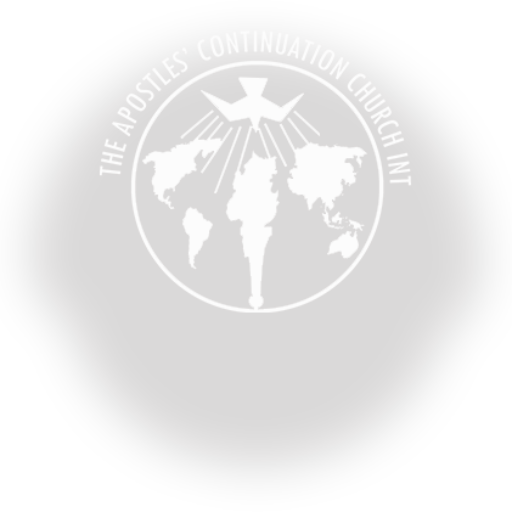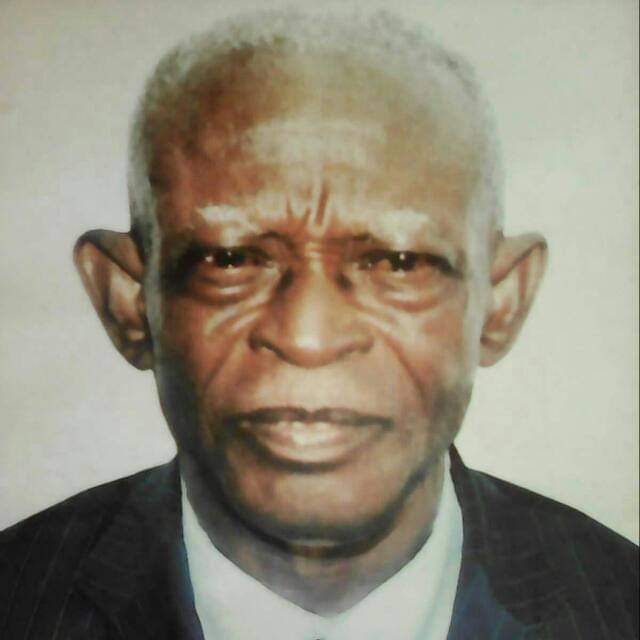
The Apostles’ Continuation Church International (ACCI) emerged from the dynamic traditions of Pentecostalism and Prophetism, which gained momentum in Ghana and Africa in the 1920s. These movements eventually influenced the broader charismatic movement. In Ghana, Apostle Peter Anim of The Christ Apostolic Church International (CACI) was a pivotal figure in the rise of Classical Pentecostalism. Following Anim’s footsteps, Pastor James McKeown from the United Kingdom founded The Church of Pentecost. ACCI grew from this rich Pentecostal tradition, significantly shaped by its founder, Apostle Emmanuel Kwadwo Owusu, who had been deeply immersed in the Pentecostal teachings of Pastor James McKeown before he embarked on his Ministry.

Apostle Emmanuel Kwadwo Owusu was born in 1919 in Duayaw Nkwanta, demonstrating early signs of a spiritual calling. As the only male among four children, he began his education at Duayaw Nkwanta Presbyterian Primary School in 1931. His deep interest in the Bible was evident from a young age, as well as his passion for athletics and music. These early inclinations towards spirituality and leadership foreshadowed his future role in founding ACCI.
Owusu’s career began with G.B. Olivant, where he worked as a Depot Assistant under Opanin Kwabena Bissi. He later joined the United Ghana Farmers Council as a Depot Clerk in Duayaw Nkwanta. His professional journey continued with the Ghana Cooperative Consumers Association in Sunyani, where he served as a cashier from 1965 to 1977 and later opened a branch in Duayaw Nkwanta. However, Ghana’s economic downturn and the political turmoil following the overthrow of President Kwame Nkrumah marked a pivotal shift in Owusu’s life, steering him towards a more profound spiritual path.
In his personal life, Apostle Owusu experienced significant events and challenges. He was first married to Abena Pomaaah (Maame Serfour), with whom he had two children, Comfort Owusu and Kwabena Abrefi. After her untimely death, he married Christiana Akosua Duku, with whom he had ten children: Akosua Afrakuma, Kofi Yeboah, Ama Henewaa, Bright Kwame Owusu, Akua Owusuaa, Esther Owusu, Kwasi Joseph, Afia Boakyewaa, Akosua Owusuaa, and Kwasi Owusu. This marriage eventually dissolved, presenting a challenging period in his life. He subsequently married Rose Bemma Denkyi, a founding member of ACCI, and after her passing, he married Georgina Bebea.
In 1938, at nineteen, Kwadwo Owusu was baptized in the Presbyterian Church. Despite his longstanding dedication, he was never confirmed. A pivotal moment in his spiritual journey occurred in 1949 when he experienced a profound spiritual conversion at thirty. This transformation was catalyzed by the ministry of Elder Adjei Sarpong, who had travelled from Asamankese to Duayaw Nkwanta, originally hailing from Akuapem in Ghana’s Eastern Region.
Elder Sarpong preached the Gospel of Jesus Christ and the power of the Holy Spirit with fervour and clarity that deeply moved Owusu and his peers. Inspired by this powerful message, Owusu, J. K. Ameyaw (Opanin Ameyaw), Daniel Danso, and Mary Adu Serwah were baptized into the Apostolic Church. They soon experienced the baptism of the Holy Spirit, marking a significant spiritual awakening in their lives.
This awakening ignited a deep passion in Kwadwo Owusu and his colleagues, prompting them to participate in the Apostolic Church. Under Elder Sarpong’s guidance, they began to gather regularly for prayer meetings, often under trees. This grassroots fellowship became the foundation of a growing and influential spiritual movement. Owusu spearheaded the establishment of the Apostolic Church in Duayaw Nkwanta and other nearby villages, including Adrobaa, Subrisu, and Berekum.
Following the notable split of the Apostolic Church in 1953, a critical challenge emerged. Undeterred, Owusu aligned with the faction led by Pastor McKeown, which later evolved into The Church of Pentecost. As the presiding elder from 1953 to 1974, Owusu played a crucial role in expanding the church and pioneering new assemblies in Bechem, Techimantia, Derma, Yamfo, Tepa, and Goka. He also represented the Brong Ahafo Region on the National Council of The Church of Pentecost, contributing significantly to the church’s governance and strategic direction.
Despite never denying his call to ministry, Owusu focused more on his spiritual mission after his cooperative consumer association collapsed. He decided to devote himself entirely to serving God, a choice that faced resistance from some family members who viewed it as impractical. Despite this pressure, particularly from his uncle, who favoured farming, Owusu remained steadfast in his faith, awaiting divine direction for his ministry.
During this period, Owusu became increasingly concerned about the financial practices within The Church of Pentecost in Duayaw Nkwanta. He noted a troubling trend of soliciting financial contributions from congregants without clear purposes, which he described as “the pastors considering the congregation as their orange fruit, squeezing the sweet juice to the detriment of the fruit itself.” Believing these practices deviated from the teachings of Rev. James McKeown, Owusu’s dissatisfaction grew, leading him to skip Sunday services.
Nonetheless, Owusu continued his spiritual growth, which was marked by profound visions and dreams.
During an eleven-day fast, Apostle E.K. Owusu received a profound revelation inspired by Mark 16:15-20, which emphasized spreading the gospel and performing signs in Jesus’ name. This scripture illuminated for him the power of the name ‘JESUS,’ particularly in the context of the Holy Spirit’s work and miraculous wonders. Owusu felt a strong calling for a spiritual revival driven by fervent and effectual prayer in Jesus’ name.
Eager to bring this vision to life, Kwadwo Owusu began a small fellowship, initially attended by two women, Susana Ankamah from Abodom Asante Bekwai and Margaret Dwomfour from Esienimpong. The group grew as Margaret brought in Paul Manu, who later introduced his friend
Clement Brakatu and their siblings. The fellowship continued to expand, drawing in members like Yaa Maaboah, Salomey Boateng, Paulina Badu, Rose Bemma Denkyi, Peter Asante, Christiana Yaa Pomaah, and others. Under Owusu’s leadership, they engaged in intense prayer activities, which led to manifestations of God’s power, including healings, prophecies, and visions, causing the fellowship to flourish.
As the fellowship gained prominence, it also faced increasing opposition, particularly from the local leadership of The Church of Pentecost, where many members still attended Sunday services. Pastor B. K. Swanzy was displeased with the group’s activities outside the church’s official meetings. Despite several warnings and interventions from the district and area presbytery, Kwadwo Owusu and his followers persisted. This led to Owusu’s excommunication from The Church of Pentecost, formalized by a letter from Apostle Patrick Asiamah, the then Regional Head, on June 4th, 1980. This marked the first of many challenges the group would face.
Finding a permanent meeting place for the growing congregation proved difficult. They moved between various locations, including the Duayaw Nkwanta Presbyterian Girls’ Middle School, The African Faith Tabernacle Church, and private homes. One incident nearly turned tragic: without permission, the group cleared a plot of land on the outskirts of town and erected a shed under a large mango tree. When the landowner discovered this, he was furious and nearly attacked Owusu. Fortunately, one of Owusu’s disciples, Kwame Asuah (later Apostle Peter Asante), intervened quickly, preventing any harm. Despite these challenges, the fellowship continued to grow.
One significant occasion which led to the early expansion of the church was the healing of Justice Daniel Yeboah, a junior brother of Paul Manu, who had suffered a stroke; his instant healing at the following brought such fervour and revival, leading to an opportunity to hold a crusade in Tuobodom, the hometown of Justice Daniel Yeboah. After a successful spiritual campaign in Tuobodom, which facilitated the expansion of the fellowship into various towns and villages in the Brong Ahafo and Ashanti regions, including Tanoboase, Asuotiano, Asante Bekwai, Techiman Wiamfie, and Kintampo.
This expansion was guided by a prophetic message delivered through Clement Brakatu, one of Owusu’s disciples. The message gave Owusu a choice: to remain a prayer centre or become a fullfledged church nationwide. Owusu chose the latter, leading the group to evolve into a church, breaking new regional frontiers.
As the fellowship grew, there was an increasing need for trained leaders to manage the new outstations and other aspects of the ministry. In response, Apostle Owusu instituted the February Bible Course in 1985, a spiritual training program that has since produced many ministers and prophets. The course remains a cornerstone of the church’s spiritual development. One notable cultural expression that emerged during this time was the ‘Pentecostal Dance,’ first introduced by Madam Salomey Boateng. This dance, characterized by a unique rhythm and movement, became a distinctive feature of the church’s identity.
A significant event in the church’s history was the naming of the fellowship. Apostle E.K. Owusu received a prophetic dream in which he saw three signposts with different church names. An angel indicated that the church should be called “Apostles Continuation Church,” a name further confirmed by a prophetic message from Prophet Justice, a member of the church’s Tuobodom branch. This concurrence of visions led to the official adoption of “The Apostles’ Continuation Church” as the church’s name, aligning with the biblical principle, “By the mouth of two or three witnesses, every word shall be established” (2 Corinthians 13:1).
The church’s growth continued beyond the Brong Ahafo Region, with significant expansion across Ghana and internationally. Paul Manu, a key disciple of Apostle Owusu, resigned from his secular job to lead the church in Techiman. Later, Manu was transferred to Accra in 1988, where he began with eleven members in the living room of his host. By the grace of God, he significantly expanded the church throughout the Greater Accra Region.
Another disciple, Clement Brakatu, responded to a prophetic call to the Ashanti Region in 1985. Armed with limited resources, Brakatu started his ministry in Kumasi, eventually expanding the church to various suburbs and beyond.
The church’s international expansion began when Elder Nkrumah Bempah, formerly a church secretary in Kintampo, initiated a fellowship in Canada. This fellowship, supported by members like Christiana Osei Owusu, her husband Anthony Osei Owusu, and James Yeboah, marked the church’s first steps into global ministry.
On September 21, 1995, Apostle Kwadwo Owusu, his wife Rose Owusu, and Clement Brakatu travelled to Toronto to visit this fledgling fellowship. This visit was a milestone in the church’s history, as Pastor Brakatu stayed behind to lead the Canadian branch. Under his leadership, the church flourished and expanded its reach to other locations, including Amsterdam, Spain, New York, New Jersey, Virginia, and Columbus, Ohio, establishing a robust international presence.
As Apostle Emmanuel Kwadwo Owusu aged, the need for new leadership became apparent. Apostle Owusu gathered the church’s pastors and prophets to ensure a smooth transition, urging them to seek God’s guidance in choosing his successor. After careful prayer and consultation, it was revealed that God chose Apostle Clement Brakatu to lead the church. The church leadership unanimously supported this decision.
On March 15th, 2003, Apostle Owusu officially ordained Clement Brakatu as his successor. During the same ceremony, seven ministers were inducted into the apostleship: Apostles Joseph
Owusu Baanor, Sylvester Agyemang, Samuel Adjei, Justice Domefe, Charles Anokye-Manu, Martin Adjei, and Solomon Berko. Additionally, eighty ministers were ordained, further strengthening the church’s leadership.
Shortly after ordaining his successor and the new ministers, Apostle Emmanuel Kwadwo Owusu fell ill. Despite receiving medical care, he peacefully passed away on Tuesday, May 6th, 2003, at the mission in Madina, Accra, where Apostle Samuel Adjei, the Area Head, hosted him.
At his passing, the church had grown significantly, with 186 branches in Ghana, four in La Côte d’Ivoire, three in Canada, three in Holland, two in the United States, and one in Great Britain. The church also employed over 250 pastoral and administrative staff members.
Apostle Emmanuel Kwadwo Owusu’s legacy is a testament to his dedication and the profound impact of his ministry on the church and its members. His vision and leadership were instrumental in establishing and expanding The Apostles’ Continuation Church International, leaving a lasting legacy that inspires and guides the church community.